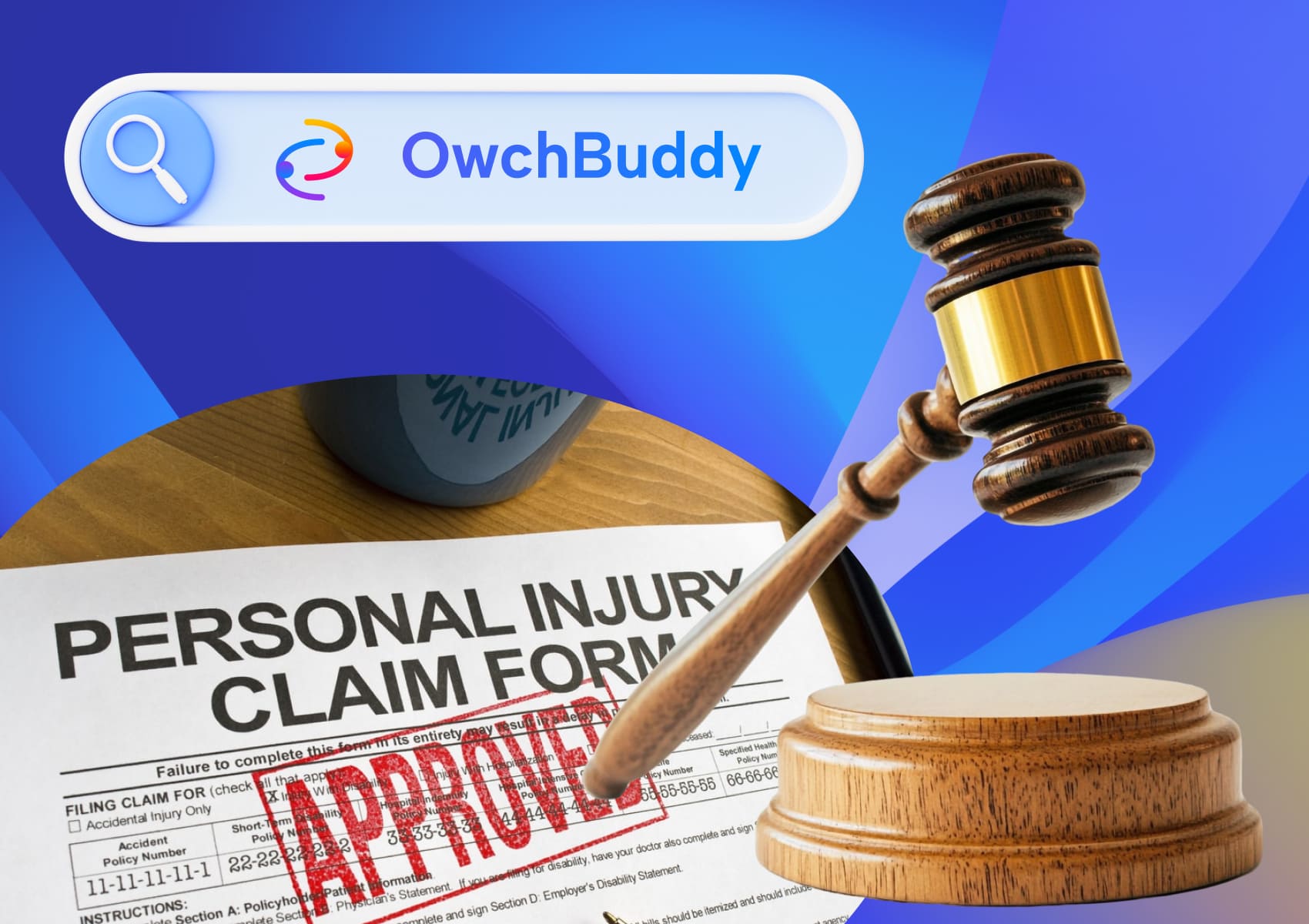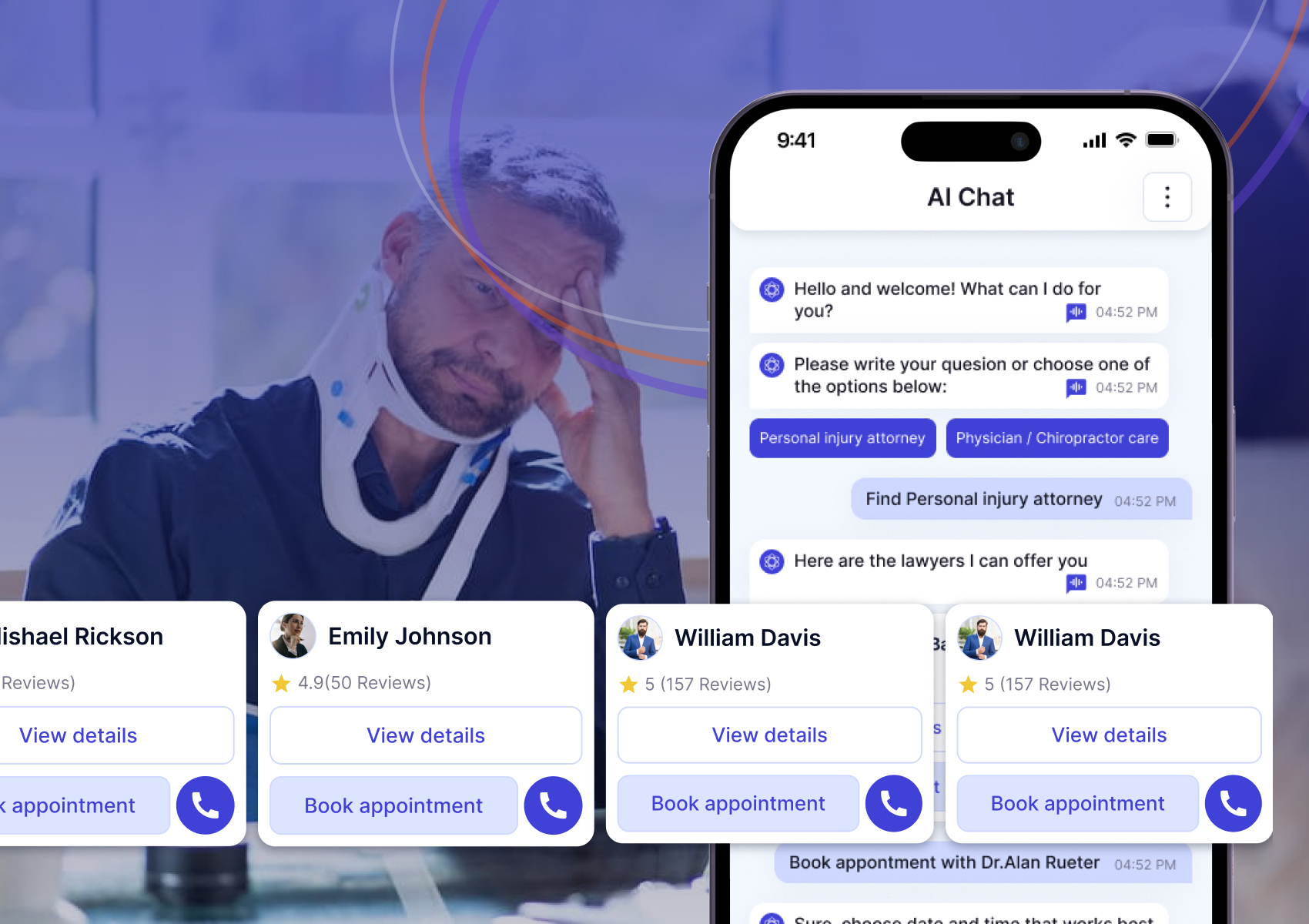What to do after a car accident: essential steps for safety and legal advice

Experiencing a car accident can be overwhelming, but knowing the steps to take immediately afterward can help ensure your safety and protect your rights. Experts at OwchBuddy have prepared a big article with tips to help you understand what to do after a car accident in the United States, and what not to do to ensure your safety and the security of your property.
10 steps of what to do when you get in a wreck
Try to remember what to do when you get in a wreck, because it can help you avoid serious mistakes. Regardless of the severity of the situation or whether it happened to you or a loved one, try to follow these tips in the given order.
- Try to calm down! It is the most important thing now!
- Ensure immediate safety
Check for injuries:
- First, check yourself and your passengers for any injuries. If anyone is injured, call 911 immediately to request medical assistance.
Move to a safe location:
- If the vehicles are in a dangerous position and can be moved, drive them to the side of the road. Turn on your hazard lights to alert other drivers. If the vehicles cannot be moved, stay inside with seat belts fastened until help arrives.
3. Call the Police
Report the accident:
- Regardless of the severity, it’s crucial to notify the police. They will document the scene and create an official accident report, which is necessary for insurance claims and any potential legal issues.
Cooperate with officers:
- When the police arrive, provide them with an accurate account of what happened. Avoid speculating, admitting fault, or making any statements that could be misinterpreted.
4. Exchange Information
Gather details:
- Exchange the following information with the other driver(s):
- Full name and contact information
- Driver’s license number and state
- License plate number
- Insurance company and policy number
Witness information:
- If there are any witnesses, ask for their contact details as their statements might be valuable later.
5. Document the scene
Take photos:
- Use your smartphone to take pictures of the accident scene from multiple angles. Capture the damage to all vehicles, any relevant road conditions (like skid marks or traffic signs), and any visible injuries.
Record details:
- Write down the time, date, location, and weather conditions at the time of the accident. Note any other pertinent details that could help in an investigation.
6. Seek medical attention
Immediate care:
- Even if you feel fine, some injuries may not show symptoms right away. Seek medical evaluation as soon as possible to rule out any hidden injuries.
Document injuries:
- Keep detailed records of all medical visits, treatments, and expenses related to the accident.
7. Notify your Insurance Company
Report the accident:
- Contact your insurance company as soon as possible to report the accident. Provide them with all the necessary details and cooperate fully with their investigation.
Understand your policy:
- Review your insurance policy to understand what is covered and what to expect during the claims process.
8. Consult a legal professional
Legal advice:
- If there are significant damages, injuries, or disputes about the accident, it may be wise to consult with a personal injury attorney. They can help you navigate the legal aspects and ensure your rights are protected.
Documentation:
- Provide your attorney with all the documentation related to the accident, including the police report, medical records, and insurance correspondence.
9. Keep records
Organize documents:
- Maintain a file with all documents related to the accident. This should include the police report, medical records, insurance correspondence, and any other relevant paperwork.
Track expenses:
- Keep track of all expenses related to the accident, including medical bills, vehicle repairs, and any other costs incurred.
10. Follow up
Monitor your health:
- Continue to monitor your health and seek medical follow-up if necessary. Some injuries may take time to manifest fully.
Stay in contact:
- Stay in contact with your insurance company and legal advisor to ensure that all claims and legal matters are handled promptly and efficiently.
What happens after a car accident with insurance in various states in the USA?
What happens after a car accident with insurance can vary depending on the state you’re in due to differing laws and regulations. Some states have specific time frames for reporting accidents to insurance companies. So at first check with your state’s regulations to ensure compliance.
No-Fault States:
- In no-fault states, your own insurance company pays for your medical expenses and lost wages, regardless of who was at fault in the accident.
- Examples of no-fault states include Florida, Michigan, New York, and Pennsylvania.
- Personal Injury Protection (PIP) coverage is mandatory in these states.
At-Fault States:
- In at-fault states, the driver who is determined to be at fault for the accident is responsible for covering the damages and injuries through their insurance.
- Examples of at-fault states include California, Texas, and Illinois.
- Liability insurance is crucial in these states, as it covers bodily injury and property damage to others.
If the at-fault driver’s insurance is insufficient to cover all damages, UIM coverage can make up the difference. UIM coverage requirements vary by state.
Contact your insurance company to file a claim. Provide them with all necessary documentation, including the police report, photos, and contact information of any witnesses.
What to do when you crash your car: state-specific nuances
It’s no secret that each state in the United States operates under its own laws. Therefore, what you have to go through when you crash your car can vary depending on where you are. For example:
California:
- As an at-fault state, the driver found responsible for the accident must cover the damages.
- California also requires all drivers to carry uninsured motorist coverage.
New York:
- As a no-fault state, New York requires drivers to have PIP coverage.
- In serious injury cases, you can step outside the no-fault system and sue the at-fault driver.
Florida:
- Florida is a no-fault state with mandatory PIP coverage.
- You can pursue legal action against the at-fault driver if injuries exceed the state’s threshold.
Texas:
- Texas operates under an at-fault system.
- Drivers are required to carry liability insurance, and UM/UIM coverage is optional but recommended.
Michigan:
- Michigan is a no-fault state with some of the highest PIP coverage requirements in the country.
- The state has a unique system called “mini-tort” that allows for limited recovery for vehicle damage from the at-fault driver.
Be sure to learn the laws in your state to avoid making the situation worse.
What to do after a minor car accident: need I call the Police?
Whether you need to call the police after a minor car accident depends on the laws and regulations in your specific location. In some areas, it’s required to report all accidents to law enforcement, regardless of severity, while in others, it’s only necessary if there are injuries or significant property damage.
Here are some factors to consider when deciding whether to call the police after a minor car accident:
- Local laws: Check the laws and regulations in your area regarding reporting car accidents. Some states or jurisdictions mandate reporting any accident, no matter how minor, while others have specific criteria for when police involvement is necessary.
- Severity of damage: Assess the extent of damage to vehicles involved. If it’s minor and there are no injuries, you may not need to involve the police.
- Cooperation of other driver: If the other driver is cooperative and willing to exchange information, you may be able to handle the situation without police involvement.
- Insurance requirements: Review your insurance policy to see if there are any requirements regarding reporting accidents to the police. Even if it’s not required by law, your insurer may request a police report for documentation.
- Future disputes: Consider whether there may be any disputes or liability issues arising from the accident. Having a police report can provide an official record of the incident, which may be helpful in resolving disputes later on.
Ultimately, it’s a personal decision whether to call the police after a minor car accident. If you’re unsure, it’s generally safer to err on the side of caution and contact law enforcement, especially if there’s any uncertainty about the situation or if you believe it may escalate into a dispute.
What not to do after a car accident: the most important things
After a car accident, there are several things you should avoid doing to prevent further complications or legal issues. Here’s a list of what not to do after a car accident:
- Don’t leave the scene: Regardless of the severity of the accident, it’s crucial to stay at the scene until authorities arrive and it’s appropriate to leave.
- Don’t admit fault: Avoid admitting fault or apologizing at the scene of the accident. Fault determination should be left to the authorities and insurance companies.
- Don’t panic: Stay calm and composed, even if you’re feeling overwhelmed or upset. Panicking can cloud your judgment and hinder your ability to handle the situation effectively.
- Don’t engage in arguments: Avoid arguing with the other party involved in the accident, even if you disagree about who’s at fault. Remain calm and focused on exchanging necessary information.
- Don’t forget to document: It’s essential to document the accident scene by taking photos of vehicle damage, injuries, and relevant road conditions. Don’t rely solely on memory, as details can be easily forgotten.
- Don’t delay reporting: Report the accident to your insurance company as soon as possible. Delaying reporting can lead to complications with your claim or coverage.
- Don’t neglect medical attention: Even if you don’t feel injured immediately after the accident, it’s important to seek medical attention promptly. Some injuries may not manifest symptoms right away.
- Don’t discuss the accident on social media: Avoid discussing the accident or posting about it on social media platforms. Anything you say online can potentially be used against you in legal proceedings.
- Don’t settle too quickly: Refrain from accepting a settlement offer from the other party or their insurance company without consulting with a legal professional. Ensure you understand the full extent of your rights and options before agreeing to any settlement.
- Don’t forget legal advice: If you’re unsure about your rights or responsibilities after a car accident, seek guidance from a qualified legal professional. They can provide valuable insight and assistance in navigating the aftermath of the accident.
By avoiding these common mistakes, you can protect yourself legally, financially, and emotionally in the aftermath of a car accident.
One step to not forget all these tips
To ensure that all these tips don’t slip your mind, you don’t need to memorize them or jot them down in notes. Instead, just take one simple action – install the OwchBuddy app on your phone from the App Store or Google Play. It’s a new AI assistant that will quickly respond in any unexpected situation and answer all your questions. Additionally, OwchBuddy has a vast database of specialists who can be helpful to you in emergencies. This one app replaces all other resources! Take care of your safety and download OwchBuddy right now.
Thank you for your comment
It will be published after moderation

 OwchBuddy
OwchBuddy







Comments 0